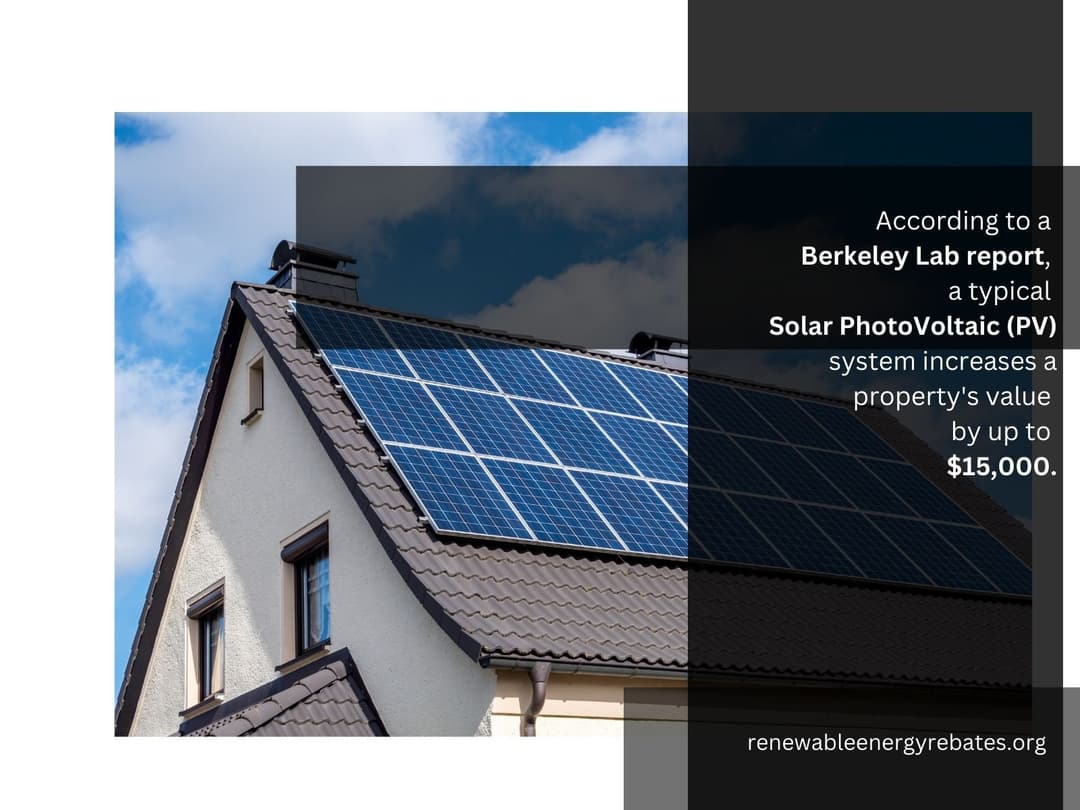Solar Panels in Suffolk County, MA
Installing Solar Panels in Suffolk County, Massachusetts: Costs, Incentives & More
Key Details
- Suffolk County, MA, residents pay an average of $2.94 per watt for solar panels, 11% more than the national average.
- Payback periods for solar panels vary based on size and installation cost.
- Factors such as the type of panel, size of the system, brand of equipment, and installation company affect the overall cost of solar.
- Incentives available in Suffolk include the Federal ITC, SMART program, and net metering.
- Solar companies, including SunPower, Invaleon Solar, Insight Solar, etc, offer their services in Massachusetts and neighboring states.
How Much Do Solar Panels Cost in Suffolk County, MA?
As of 2023, the average cost of solar panels in Suffolk County, MA, is about $2.94 per watt.
Suffolk residents expect to pay around 11% more than the $2.66 per watt national average. After the federal solar tax credit, Suffolk residents might have to pay $10,290 for a five-kilowatt (kW) solar power installation project.
Solar panels cost an average of $20,020 in the United States in 2022, compared to $50,000 ten years ago.
Average solar panel cost in Suffolk County, MA
| Energy System Size | Solar Panel Cost | Cost After Credit |
| 3 kW | $8,200 | $5,740 |
| 4 kW | $11,760 | $8,232 |
| 5kW | $14,700 | $10,290 |
| 6kW | $17,640 | $12,348 |
| 7kW | $20,580 | $14,406 |
| 8kW | $23,520 | $16,464 |
| 9kW | $26,460 | $18,522 |
| 10kW | $29,400 | $20,580 |
How Long Does it Take for Solar Panels to Pay for Themselves in Suffolk County?
The solar payback period in Suffolk County varies from five to nine years. However, the actual payback periods for solar panels vary depending on the cost of the solar panels and the installation process.
The payback period is when it takes a solar consumer to save as much on their electric bill as when they bought the solar panel system. If the payback time is short, it guarantees homeowners a good investment because they start earning a profit for the rest of the system's lifespan.
For example, solar applications last 20 to 25 years, and a payback period of five years ensures the homeowner profits from the solar system for the remaining 15 to 20 years.
Are Solar Panels Exempt from Property Taxes in Suffolk County?
Yes. The Real Property Tax Law § 487 exempts solar panels from property taxes until March 1, 2025. All new Solar Energy Systems and Wind Energy Systems are eligible for this tax exemption.
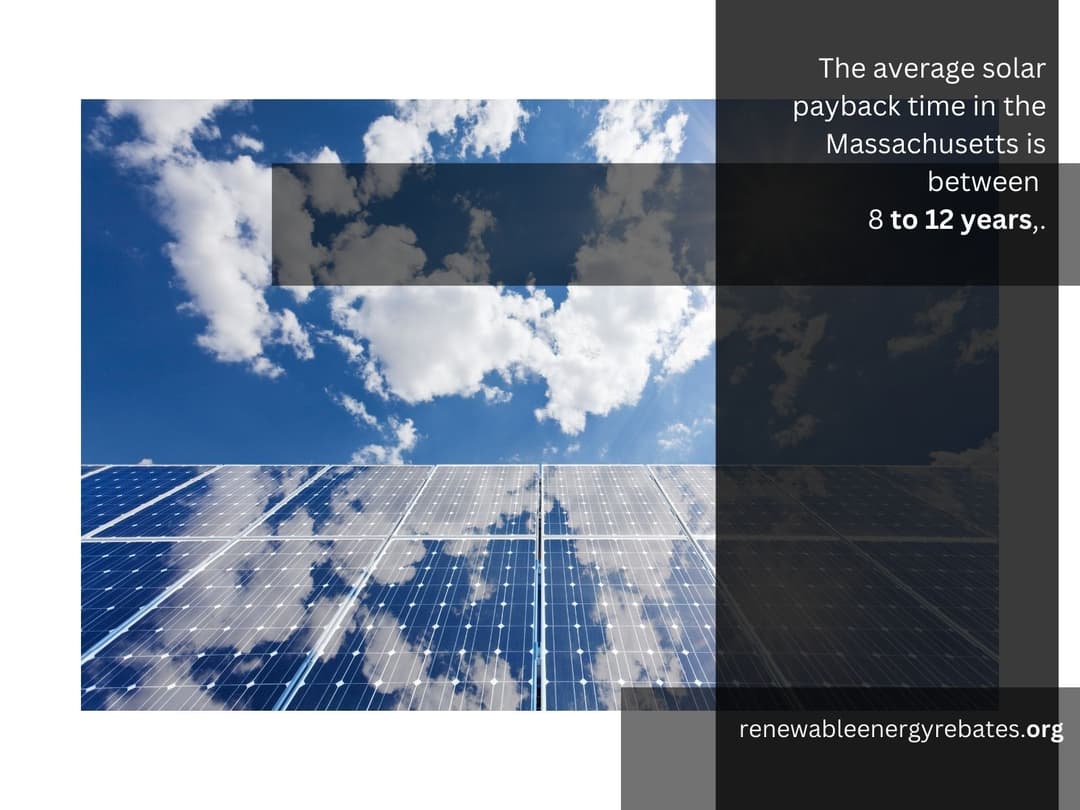
What are the Incentives for Solar energy in Suffolk County, Massachusetts?
Massachusetts offers multiple solar incentives to encourage the adoption of renewable energy, in line with the Bay State's climate roadmap goals.
Some of the incentives available in Suffolk County, Massachusetts, include:
The Solar Massachusetts Renewable Target (SMART) program
Available to Suffolk County residents, the Solar Massachusetts Renewable Target (SMART) program replaces the Solar Renewable Energy Credits (SREC) scheme for solar renewable energy credits.
The SMART program offers a compensation rate based on the total electricity generated and consumed. Utility officials state the energy value at the beginning of the program based on the current electricity delivery and supply rates.
The program reduces payback times by at least 40%, making solar adoption far more rewarding. As a result, a typical home solar system may be profitable in less than five years.
How much a solar user can earn through the SMART program depends on the utility company, the designated block qualifies for, how much solar power it generates, and the type/size of the solar panel installation. The block system refers to houses in particular settlements registered with a utility company for the program.
The "added incentive" amount for a typical residential solar panel installation will equal the baseline incentive value of the block minus the cost of energy delivered via net metering credits.
At the program's start, the homeowner receives the energy value rate based on current electricity delivery and supply rates. For example, a consumer with an eight kW solar panel system in Block 1 charged $0.34 per kWh at a price per watt rate of $0.20 per kWh will earn an extra $0.14 per kWh of solar production over 10 years.
Federal Investment Tax Credits
The Energy Policy Act of 2005 introduced the now-renewed Solar Investment Tax Credit (ITC). The federal solar tax credit had a previous 2007 expiration date but is now scheduled to end in 2032. ITC is equal to 30% of the cost of the entire system. This includes the cost of the components and the installation's contractor expenses.
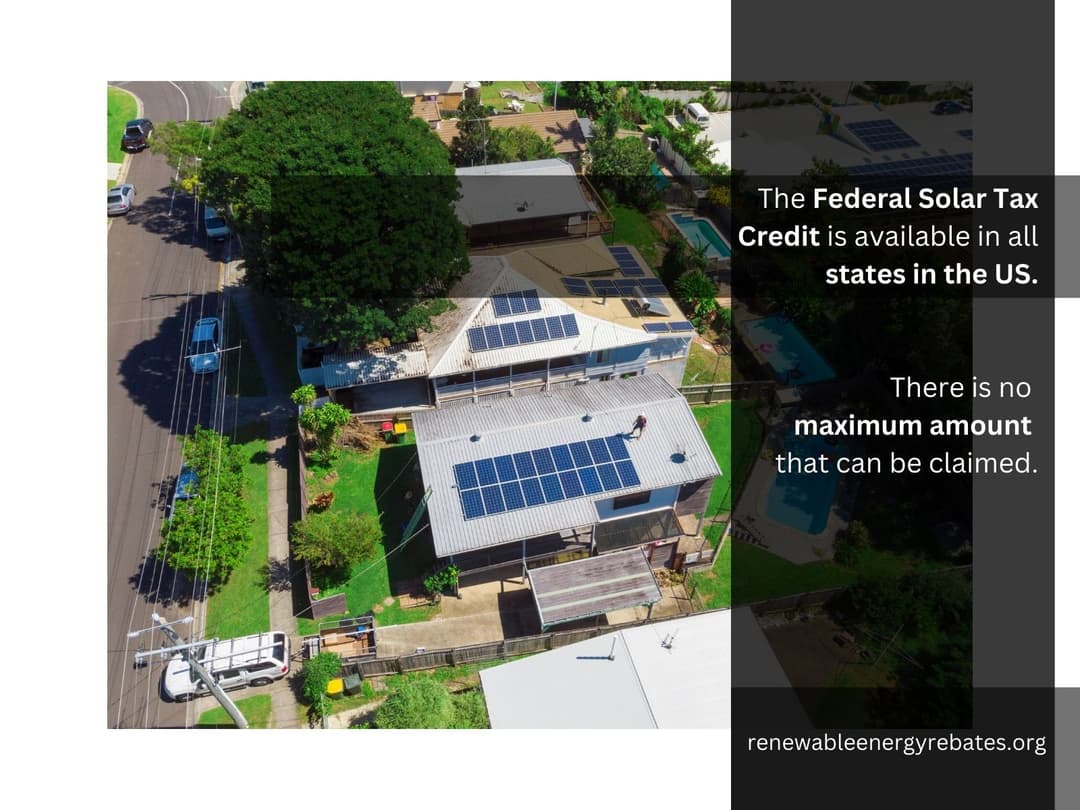
Tax Exemptions
Suffolk County offers a 15% tax credit off the solar system's net expenses, but only up to $1,000. However, there are specific requirements for solar tax exemptions, such as:
- Only principal residential homes using renewable energy are eligible for the energy credit
- The claimant must be a taxpayer in the state
- Exemption for renewable energy storage systems
- The homeowner must be a resident of Massachusetts.
Rebates
A solar rebate is a decrease in the price of installing a solar energy system on a dollar-for-dollar basis. Many solar rebates are available to provide savings to homeowners for their installation. Homeowners receive a one-time payment or a succession of them after installation. Rebates are usually limited-time offers to achieve the government's or company's goals.
Net Metering
Net metering allows solar homeowners to get bill credits from their utility for the energy they send back to the grid. When the solar panels produce more energy than needed for residents operating a PPA, the homeowner sells the excess to the solar utility company.
The credit will offset their solar bill in the next month while the company sells off the surplus to others. Although there have been various disputes in Massachusetts on net metering, this incentive is still in place.
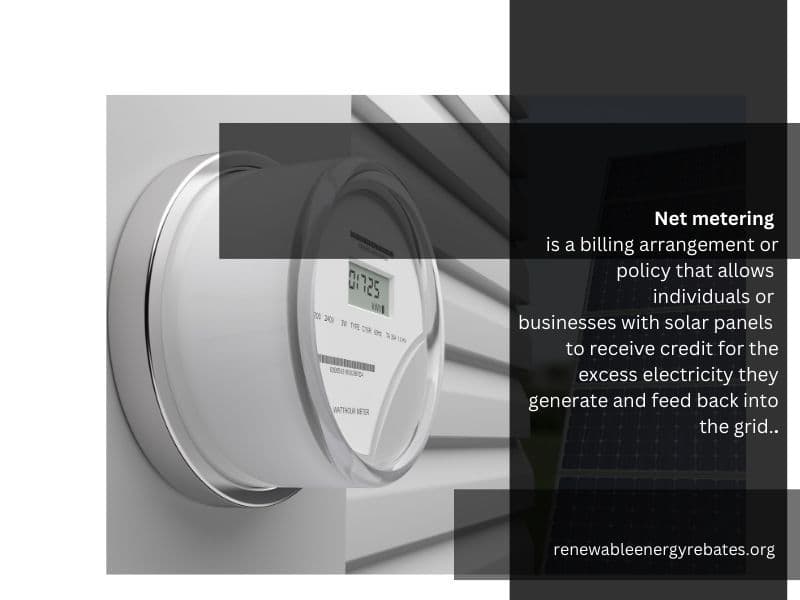
Solar Renewable Energy Credit (SREC)
The Solar Renewable Energy Credits (SREC) enable a homeowner to generate additional cash from solar electricity.
For every megawatt-hour (MWh) or 1,000-kilowatt hours (kWh) of electricity the solar system produces, the homeowner receives one SREC.
For example, a 10 kW solar panel system will generate 10 to 13 MWh of electricity annually, equal to 10 to 13 SRECs. However, homeowners are unpaid per 1 unit.
The calculation of generated units over time is subject to the Solar Alternative Compliance Payment (SACP), demand, supply, and the Solar Credit Clearinghouse Auction (SCCA).
There are two separate SREC programs in Massachusetts, SREC I and SREC II.
Residents who installed solar before 2014 are under SREC I.
These factions affect how to calculate the credit. For example, in 2022, residents under SREC I will get a value of $347, while SREC II registrants get $285.
How can I Sell Solar Energy in Suffolk County, Massachusetts?
When solar panels produce more electricity than consumed, homeowners can sell the excess solar energy using the net metering program. Net metering allows solar energy users to transfer power back to their electric company for credit.
The cost of savings with solar energy depends on the following factors:
- The amount of electricity used
- The size of the solar energy system
- The shape of the roof
- How much sunlight it receives
- How much power can the system create
- If the homeowner owns or leased the system.
To calculate the net metering of a solar unit, subtract the total power used from the total electricity generated in a month.
Residents can also use meter calculators to know their net metering. These calculators link to a meter and compute net electricity consumption. As a result, the meter increases when homeowners use the electric power supplied.
The meter rotates counterclockwise when the panels produce extra electricity and "export" it to the electric grid. Residents can find the current electricity rates in their area using the National Utility Rate Database.
How To Calculate Net Metering
- Homeowners should determine their net metering class (class I, class II, or class III)
- Use the net credit formula according to the net metering class
- Know the current rate of the solar utility provider
- Put these values into the credit formula to calculate the value of a credit for each unit of excess electricity (in kilowatt-hours)
Alternative Forms of Net Metering
Aside from net metering, there are other ways consumers can make money from their solar energy system, such as:
Net Billing
This market-based compensation system allows solar consumers to sell their excess electricity produced to the utility company for wholesale. The current market value of the kilowatt-hours (kWh) consumed or added to the grid determines the payment. However, residents cannot use credits on the next billing cycles with this kind of net metering.
Buy and Sell System
The Buy/sell model enables solar consumers to sell the total energy their solar panels produce to a utility company. The utility company provides the homeowner’s electricity needs at a retail price in return. For this type of net metering, the homeowner needs two independent meters.
The user must pay for the difference between the energy generated and used. Residents are not required to use any of the solar energy their panels generate under the Buy all/sell net metering.
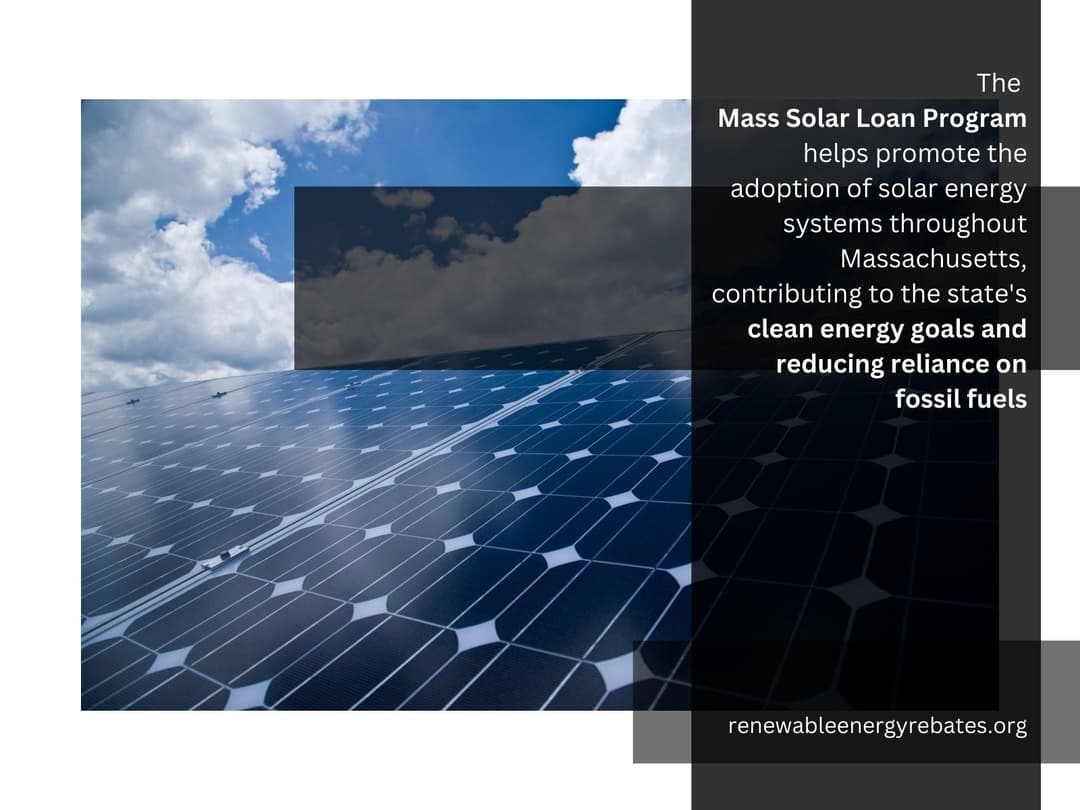
What are the Best Solar Energy Companies in Suffolk County, Massachusetts?
Some of the companies that offer solar services across Suffolk county and other parts of Massachusetts include:
| Great Sky Solar | Arlington, MA |
| All Energy Solar | Westfield, MA |
| PlugPV | 253-D Worcester Rd, Charlton, MA 01507 |
| Invaleon Solar | Haverhill, MA |
| Future Energy Solar | Melrose, MA |
| SmartRoof Capital | Orleans, MA |
| ACE Solar | North Andover, MA |
| Insight Solar | Hatfield, MA |
| Solar Rising LLC | Mashpee, MA |
| Venture Solar | 2 Kane Industrial Drive, Hudson, MA 01749
221 Weaver Street, Fall River, MA 02720 |
Do You Need a Handyman or a Solar Installer in Suffolk County?
The U.S Office of Energy Efficiency and Renewable Energy (EERE) recommends using certified professionals for solar installations. They must have the necessary qualifications from the North American Board of Certified Energy Practitioners (NABCEP).
Ensure that the handyman or installer has at least two to three years of experience in the field. Also, they must own necessary licenses, working permits in the area, and insurance policies.
Do Solar Panels Increase a Home Value in Suffolk County?
According to a 2019 survey by the Zillow Group, homes with solar sold for an average of 4. 1% more than properties without solar. This gave a home an edge of at least $9,274.
Also, in independent research conducted by the Department of Energy, homeowners were willing to spend up to $15,000 extra for a home with solar power. These properties sold faster than homes without solar power.
Solar panels are worthwhile investments that increase the value of a home, but some factors influence how much value they add to the house.
The following factors increase a home's value to varying degrees:
Available Incentives in the House Location
Homeowners get a better payoff if good incentives are available in their state. For example, homeowners can enjoy financial incentives available to renewable energy users like net metering programs, Solar Renewable Energy Credits (SRECs), and Federal Solar Tax credits.
Quality of System Installed
People that choose a high-quality solar system have a well-guaranteed performance rate than a less expensive one. In addition, selecting a high-end system will later increase their home value as a selling point.
The System Size Installed
How much the value of the home increases will depend on the size of the installed solar system. Larger solar units produce more energy and increase the value of the home.
People's Preferences
The many advantages of solar energy have led to widespread awareness. Over 80% of home buyers value energy-saving amenities. In addition, eco-friendly behaviors are appealing to people. This includes recycling, planting trees, and using alternative forms of energy.
System Age and Replacement Value
Older solar applications have lesser values because of depreciation. Buyers might have to repair or replace the system, devaluing it. Likewise, hard-to-get or expensive system parts add less value to a home during a sale.
How to Find Solar Companies Near Me in Suffolk County, Massachusetts?
Suffolk County residents looking for solar companies can simplify the process using these steps.
STEP 1 : Create a shortlist of local installers using a search engine. Use keywrods like "Suffolk solar companies near me" or "Massachusetts solar companies near me".
STEP 2: Vet the companies. When looking for local solar service providers, it is crucial to consider whether they are certified with a valid electrical license.
STEP 3: Check the company's web reviews. Consider the company's warranty, customer service policies, installation, and solar equipment.
What Energy Companies offer Solar Rebates in Suffolk County, Massachusetts?
Solar rebates are refunds of specific percentages to homeowners who buy solar energy systems. Suffolk County, Massachusetts, has varying rebates and incentives for residents to encourage solar energy adoption and subsidize its costs. Homeowners can access this by submitting a rebate application to the utility company or the approved authority.
The federal government, state, municipalities, and electricity providers offer solar incentives to residents to encourage solar energy usage.
The government provides investment tax credits (ITC) to reduce solar energy systems costs by 30%. However, the ITC only applies to people who buy their PV system with cash or loans. One of the best solar incentives is net metering, which allows solar homeowners to get bill credits from their utility.
Some of the companies in Massachusetts that offer rebate incentives include:
- SunPower offers a wide berth and ease of affordability by providing a loan, lease, and power purchase agreement (PPA) as payment choices and a solar rebate.
- Sunrun) delivers a 26% federal tax credit for installing solar panels with or without battery storage.
- All Energy Solar will help residents process federal tax credits and offer several payment choices, including paying for solar monthly rather than all at once.
- ACE Solar ranked the number one solar contractor in Massachusetts six times.
- Insight Solar will familiarize homeowners with the commonwealth's SMART cash payments for solar generation, the 26% federal tax credit for 2020, and the $1,000 state credit.
